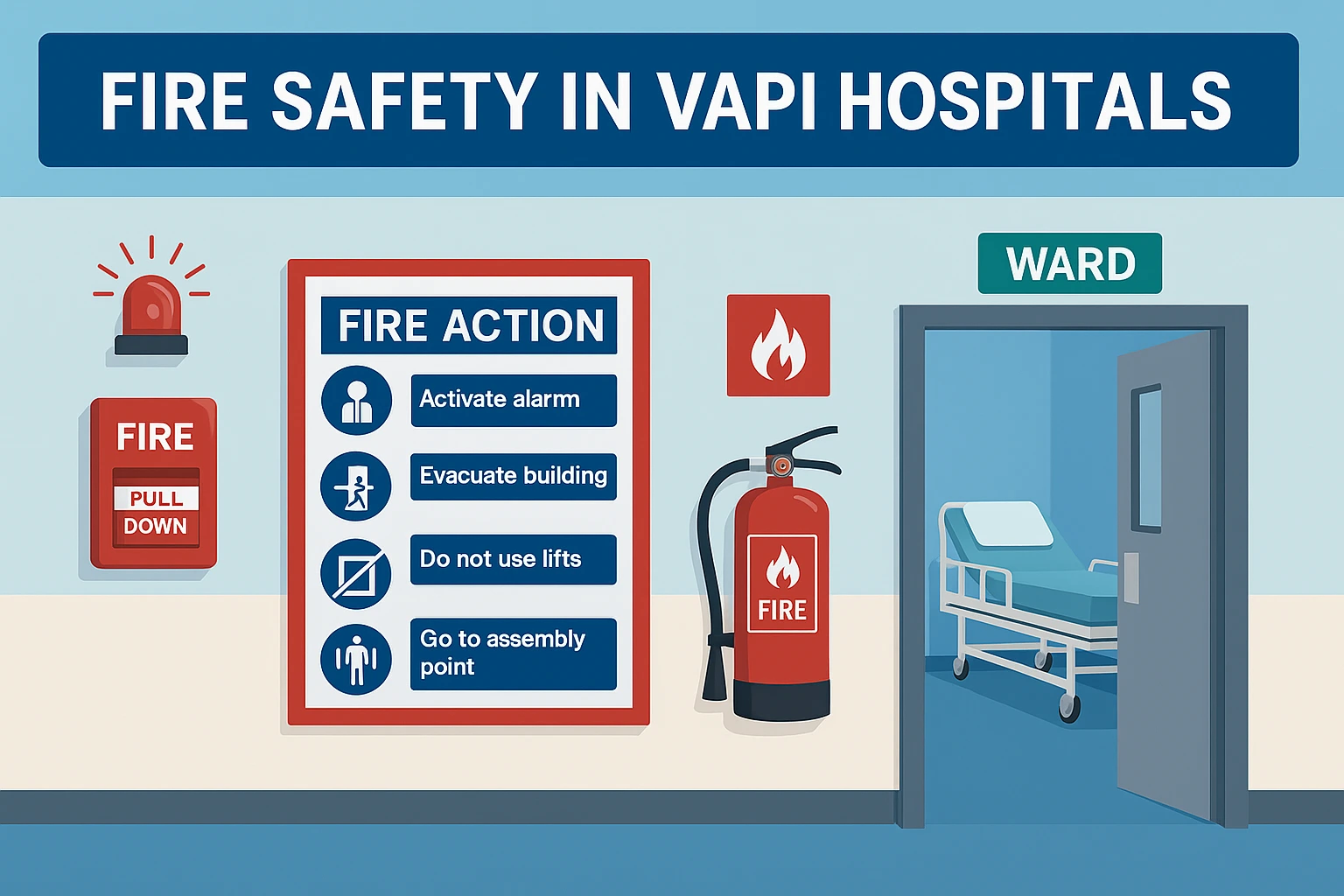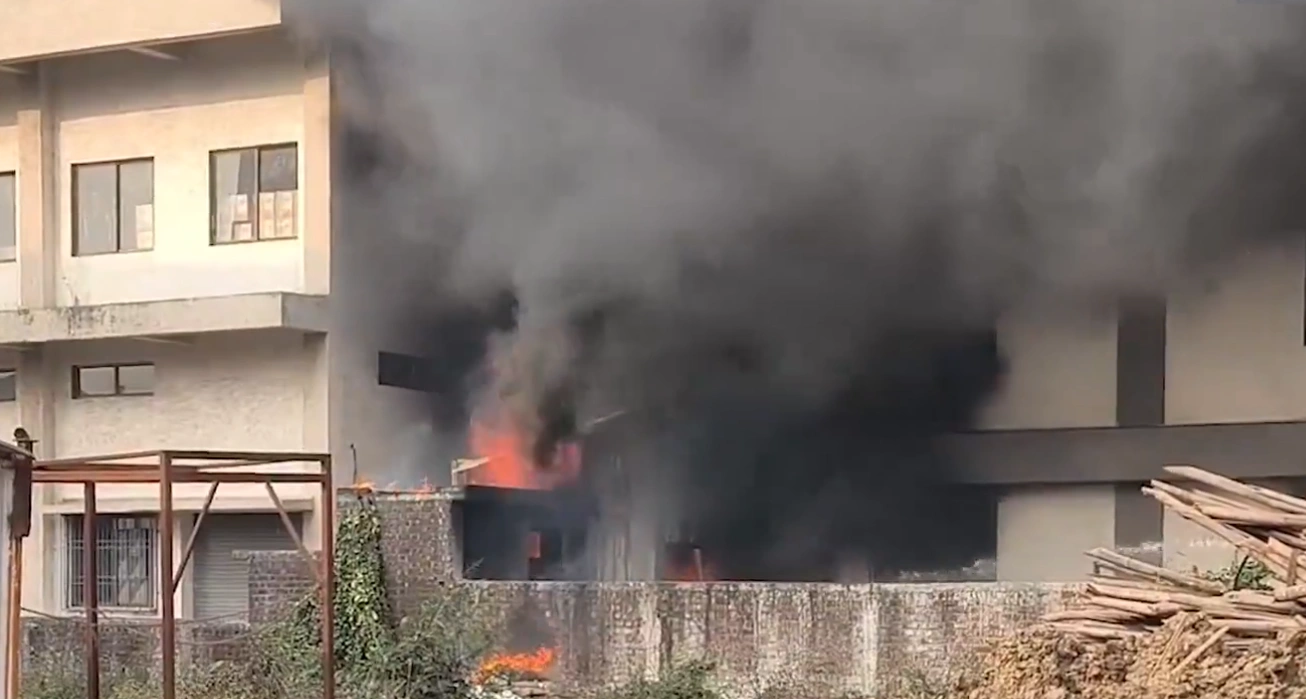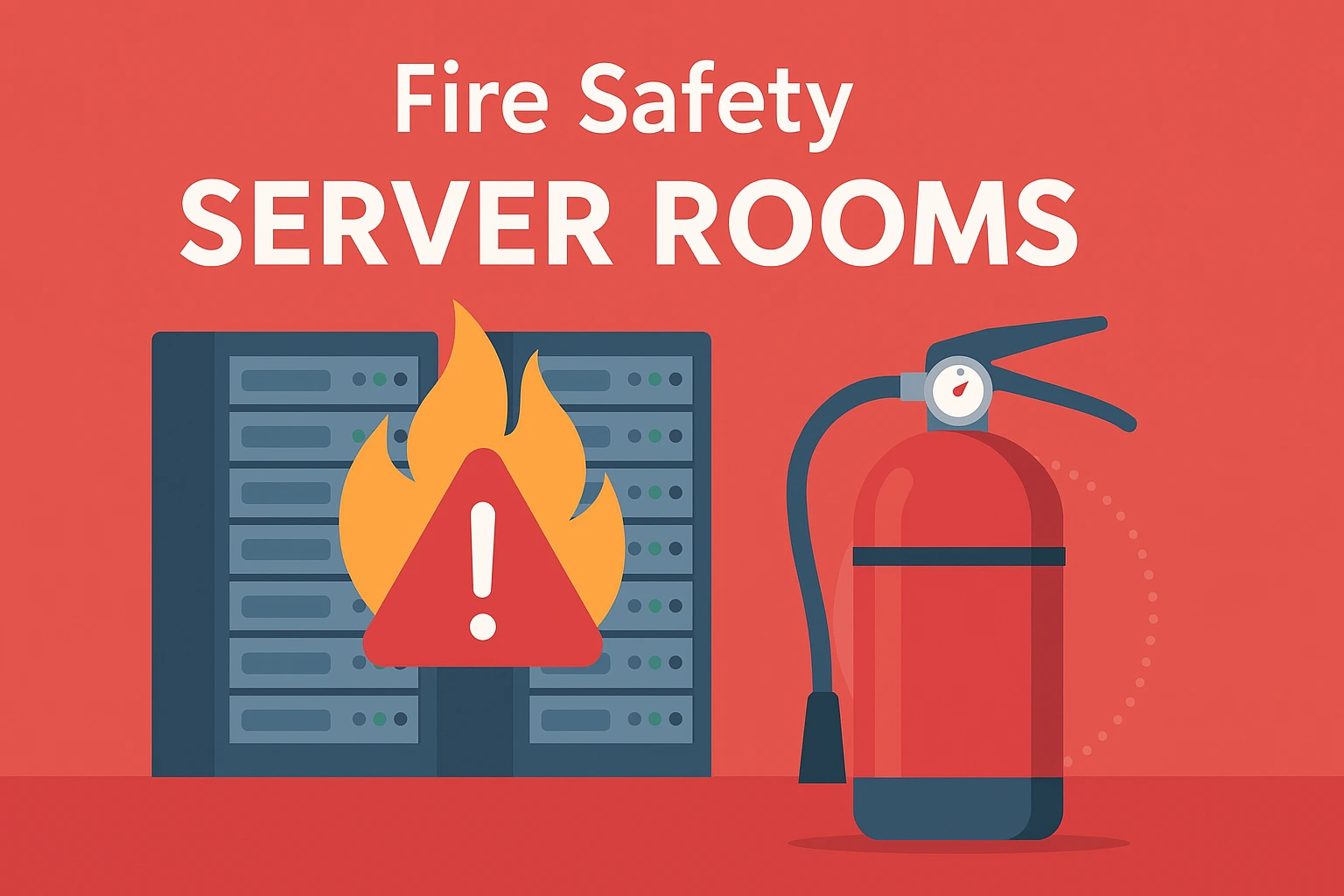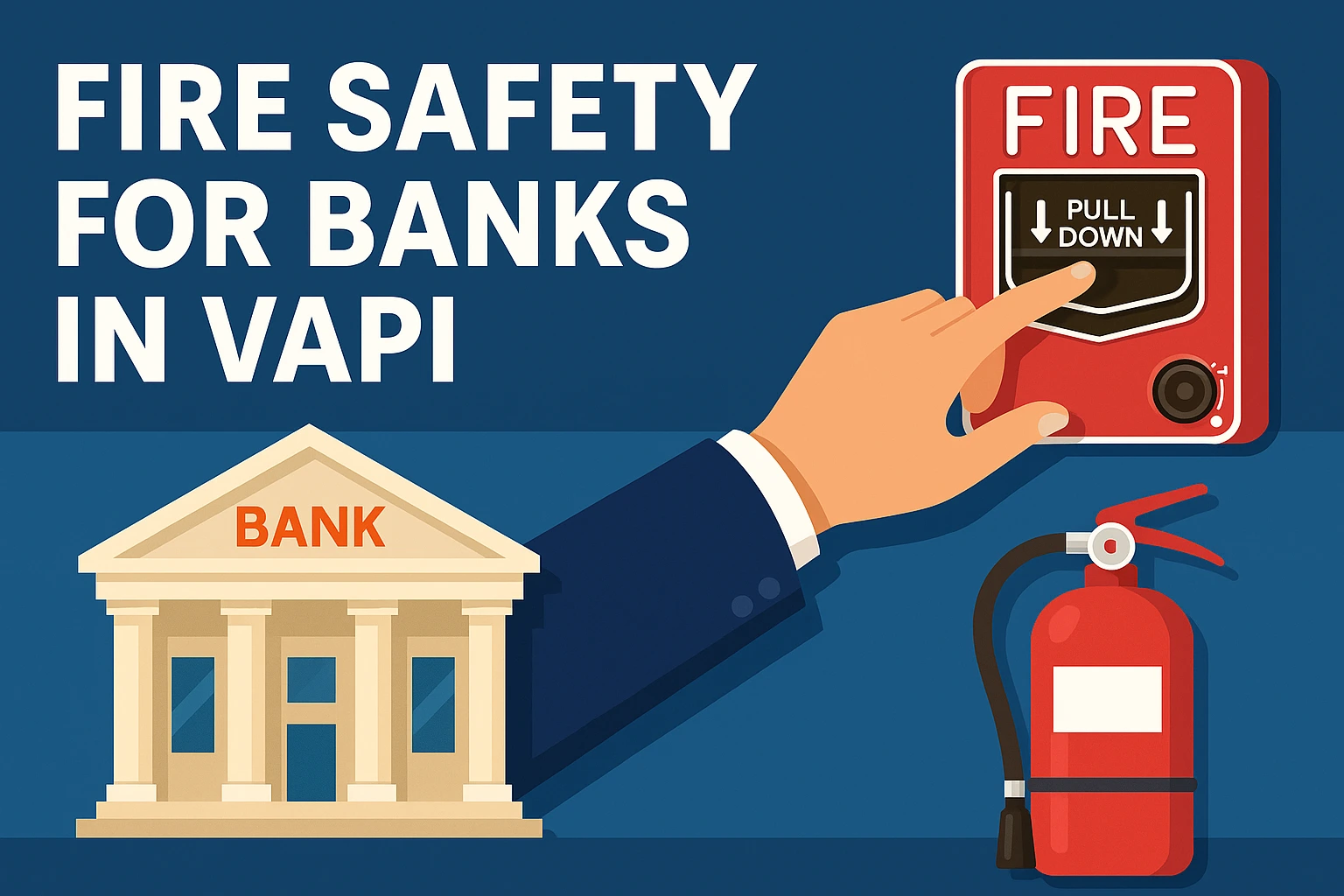Fire Safety Essentials for Hospitals in Vapi
May 22, 2025

Table of Contents
Ensuring rock-solid fire safety in hospitals isn’t just a regulatory checkbox—it’s a matter of life and death.
Introduction To Fire Safety for Hospitals
In Vapi’s healthcare facilities, where patients depend on uninterrupted care and high-risk equipment surrounds every corridor, a single lapse can cascade into tragedy. From ICU oxygen lines to sterile labs, every department must be wired into an integrated fire-protection strategy. This post outlines the critical measures—detection, suppression, evacuation planning, and staff training—that Vapi hospitals need to safeguard lives, meet Gujarat’s fire-code mandates, and maintain uninterrupted patient care.
1. Advanced Detection & Alarm Systems
Multi-Spectrum Smoke Detectors: UL-listed photoelectric + ionization units in patient rooms and corridors.
Rate-of-Rise Heat Sensors: In kitchens, laundries, and boiler rooms to avoid steam or cooking-mist false alarms.
Voice-Evacuation Panels: Clear, multilingual announcements for rapid, calm evacuation.
2. Reliable Suppression & Extinguishers
Wet-Pipe Sprinklers: Throughout wards and operating theatres with quick-response heads.
Pre-Action & Deluge Systems: In MRI suites and chemical storage for instantaneous protection without water damage.
Portable Extinguishers:
- CO₂ units at electrical panels and server rooms
- Foam units near chemical/pharmacy stores
- ABC dry-powder in general areas
3. Evacuation Planning & Infrastructure
Pressurized Stairwells: Keep smoke out of escape routes.
Refuge Areas: Designated safe zones on every floor, equipped with oxygen supply lines.
Illuminated Exit Signage: Battery-backed in Gujarati and English, with braille panels.
Fire-Rated Doors: EI 90-rated between high-risk zones and patient wings.
4. Staff Training & Drills
Quarterly Fire Drills: Simulate bed-patient evacuation, oxygen-line shutdown, and stairwell egress.
P.A.S.S. Extinguisher Workshops: Hands-on sessions in non-clinical areas.
Role-Specific Training:
- Nurses: CPR + fire-blanket use
- Technicians: Pump-panel operation
- Admin: Alarm-panel troubleshooting
5. Inspection, Testing & Maintenance
Daily Visual Checks: Gauges, seals, and signage on all extinguishers.
Monthly Alarm Tests: Horns, strobes, and panel faults.
Quarterly Sprinkler Flow Tests: Verify water-flow rates.
Annual Full Audit: By an ISI-certified provider (e.g., Munshi Fire Safety, Vapi) with detailed compliance report.
Featured Products
Fire Safety Equipment for Vapi Hospitals
Explore our IS 15683-certified products, optimized for healthcare:
- 2 kg CO₂ Extinguisher: For electrical fires in monitoring stations
- 9 L AFFF Foam Extinguisher: Ideal in pharmacy compounding areas
- Automatic Wet-Pipe Sprinkler Heads: Quick-response, corrosion-resistant
- Pre-Action Valve Assemblies: For sensitive zones like MRI suites
How to Conduct a Hospital Fire Drill in Vapi
1. Plan the Drill
Notify department heads, schedule off-peak hours, and prepare a patient transport list.
2. Activate the Alarm
Use the main fire-panel to initiate a voice-evacuation sequence and trigger strobes.
3. Evacuate Patients to Refuge Areas
Nurses and orderlies move non-ambulatory patients along pressurized stairwells to designated safe zones.
4. Operate Suppression Panels
Engineering staff demonstrate pre-action valve actuation in ICU and MRI zones under supervision.
5. Conduct Accountability Check
Department heads verify all staff and patients are accounted for, using floor-plan checklists.
6. Debrief & Document
Review response times, communication logs, and equipment performance; generate a compliance report.
commonly asked questions
Are fire drills mandatory for hospitals under Gujarat law?
Yes—quarterly drills are required to maintain compliance and staff readiness.
How do we test pre-action systems without flooding?
Perform dry-flow and pressure-monitor tests following NFPA 25 guidelines.
Can we conduct drills during visiting hours?
It’s safest to schedule off-peak; for nighttime wards, simulated alarms with staff-only participation are recommended.
Who certifies our fire-safety systems?
An ISI-certified company like Munshi Fire Safety (Vapi) issues official compliance certificates post-audit.
Admin
Fire Safety Expert
Stay Updated
Get the latest fire safety tips and news delivered to your inbox.



